Number Recognition Easy Word Problems Worksheets for Ages 6-8
9 filtered results
-
From - To
Explore our engaging "Number Recognition Easy Word Problems Worksheets" designed for children aged 6-8! These worksheets provide a fun and interactive way for young learners to enhance their number recognition skills through simple, relatable word problems. Each activity encourages critical thinking and helps students build a strong mathematical foundation by applying classroom knowledge to everyday scenarios. Perfect for home or classroom use, our resources cater to diverse learning styles, making math accessible and enjoyable. Empower your child’s learning journey with these thoughtfully crafted worksheets that promote confidence and inspire a love for math! Download now and watch them thrive!
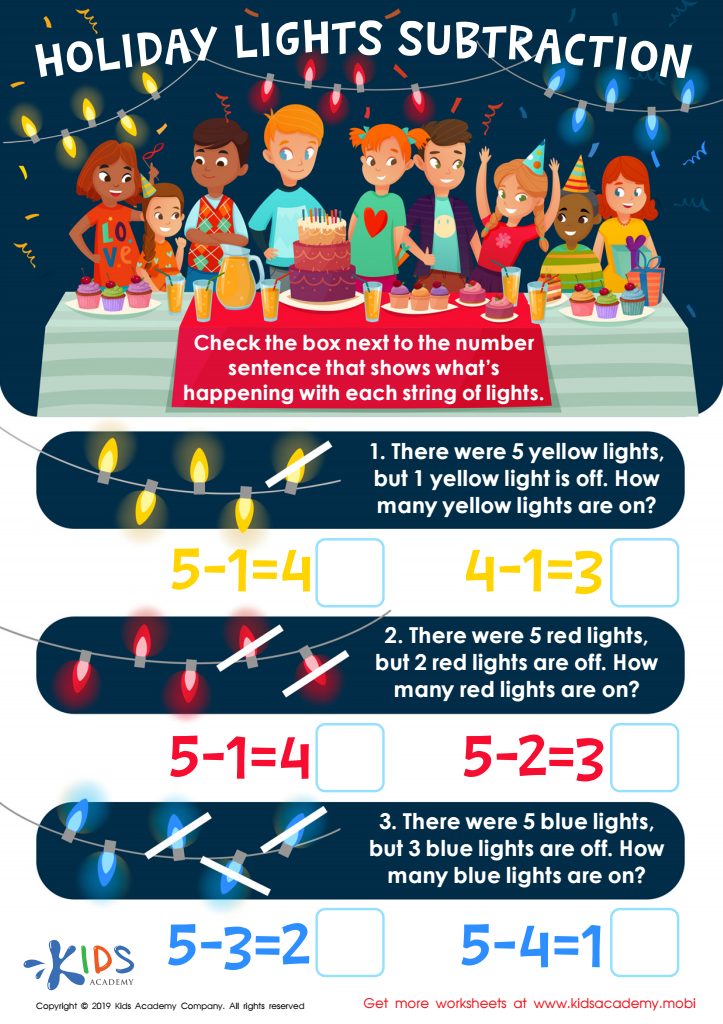

Holiday Lights Subtraction Worksheet
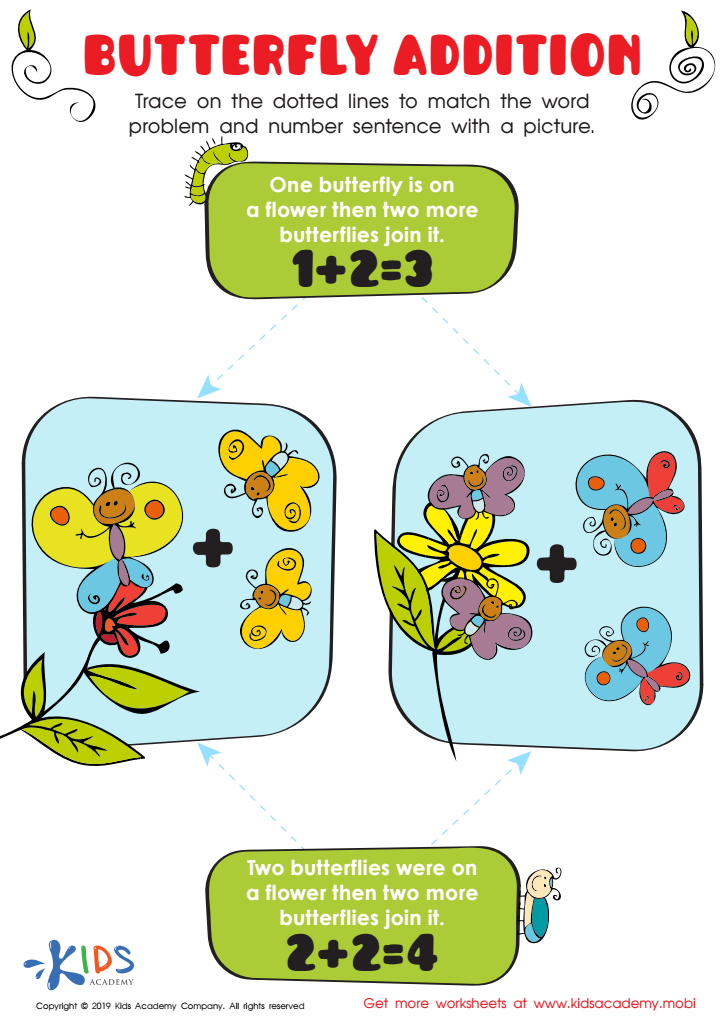

Butterfly Addition Worksheet
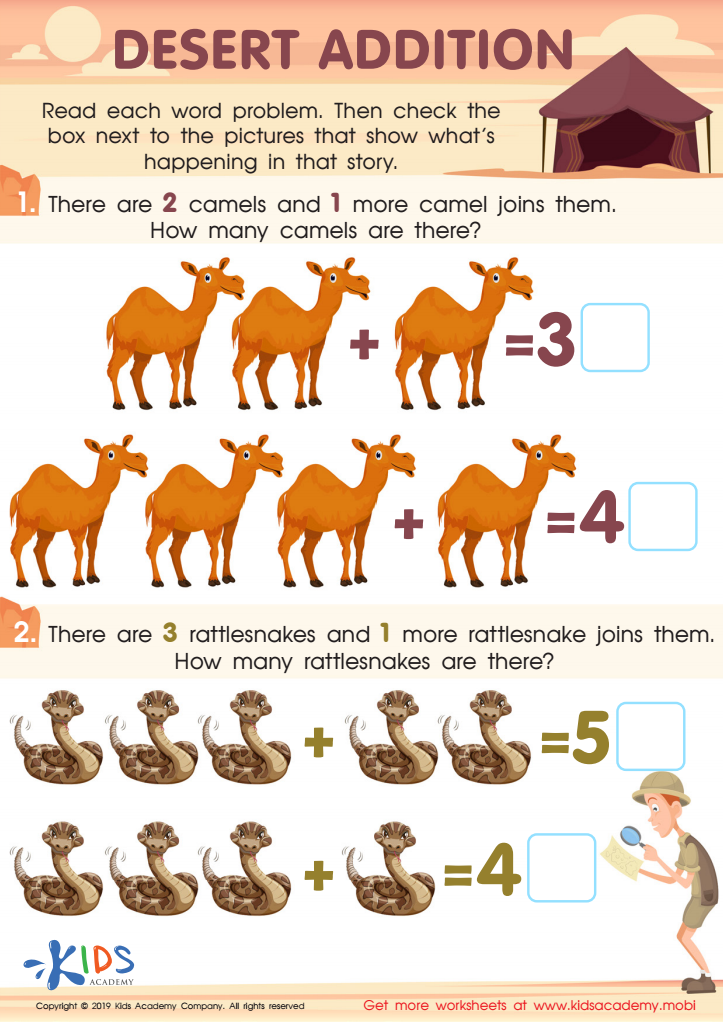

Desert Addition Worksheet


Counting Seedlings Worksheet
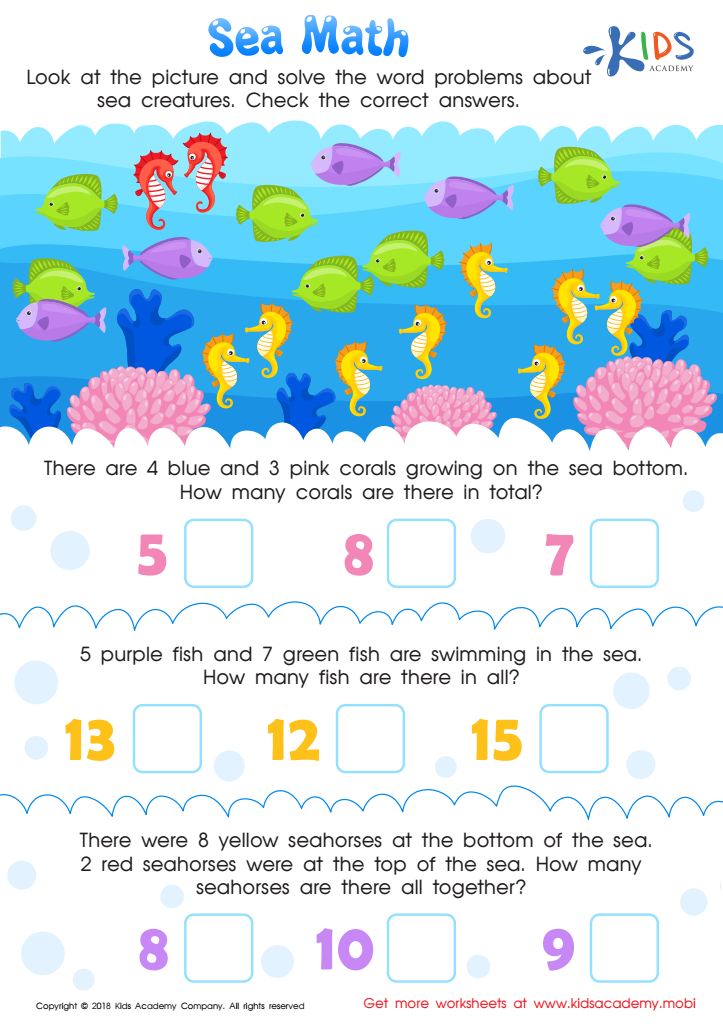

Sea Math Worksheet
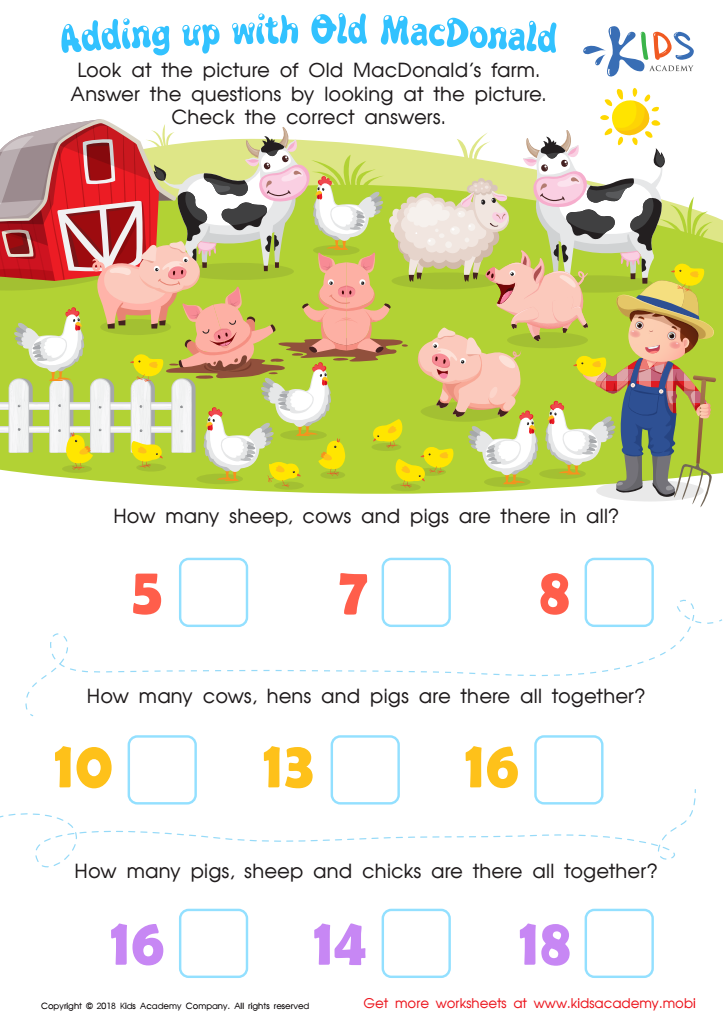

Adding Up with Old MacDonald Worksheet
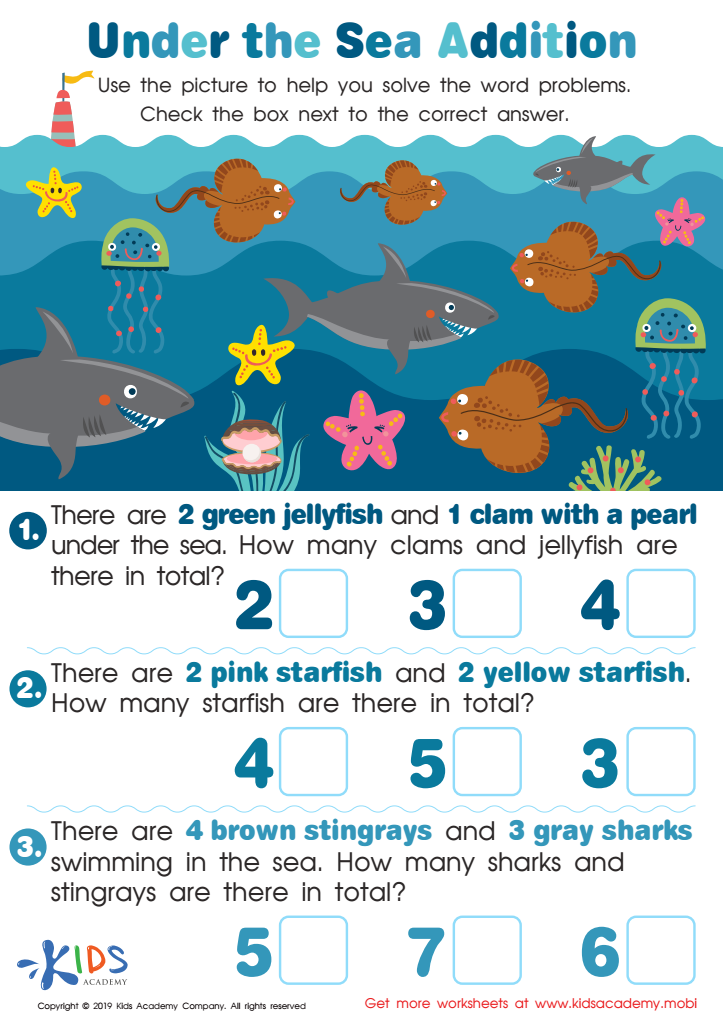

Under the Sea Addition Worksheet
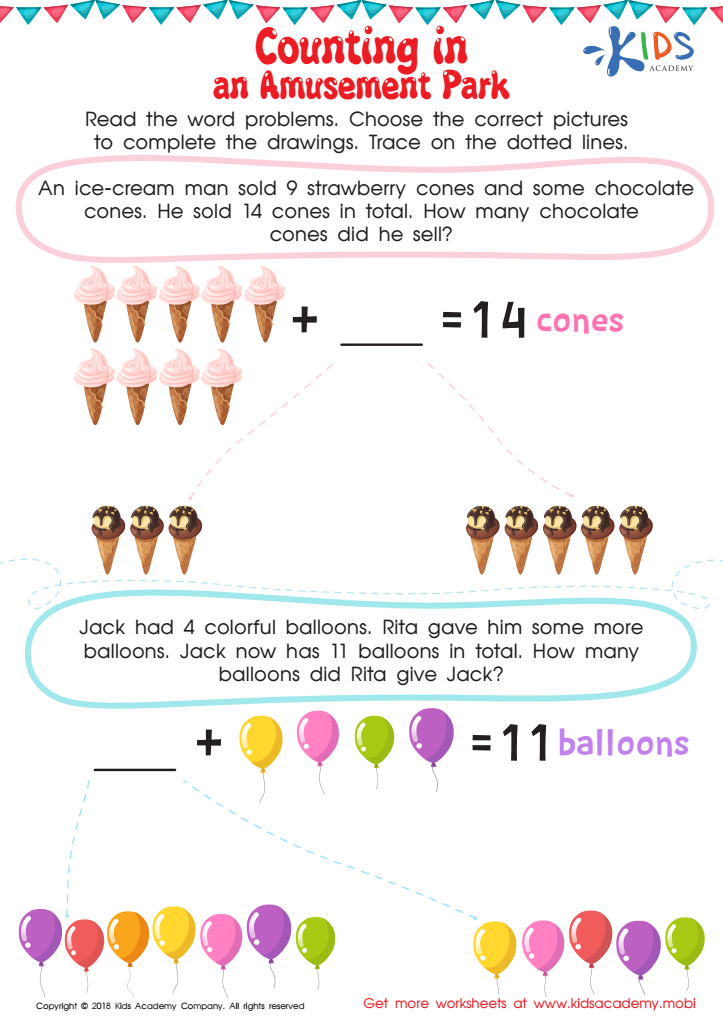

Counting in an Amusement Park Worksheet
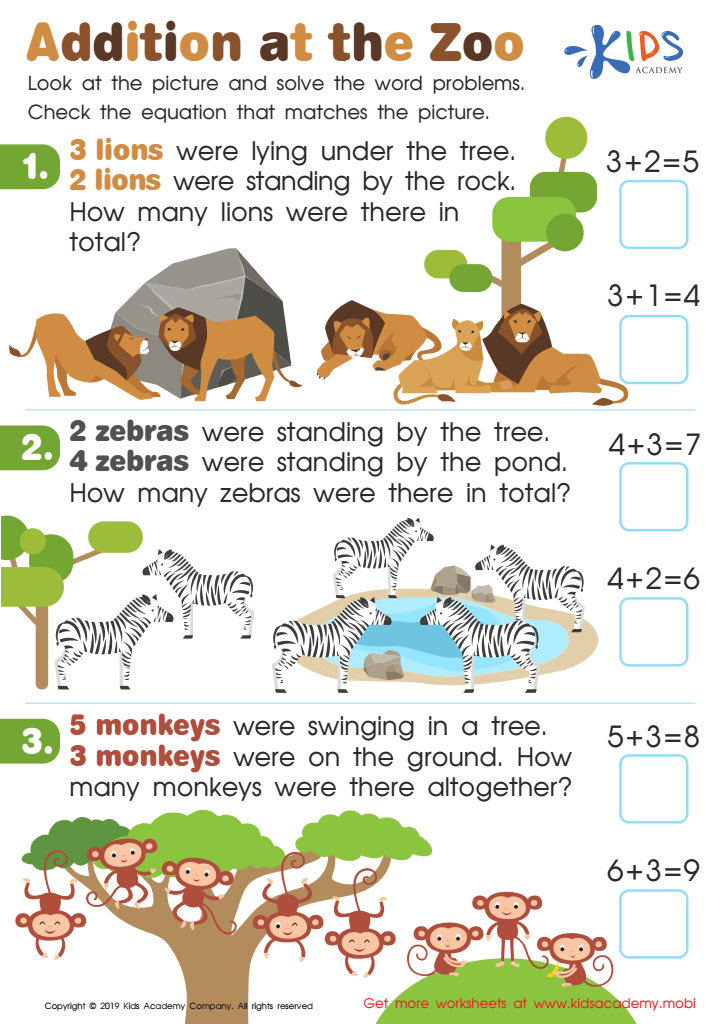

Addition at the Zoo Worksheet
Number recognition and easy word problems are crucial developmental milestones for children aged 6-8, an age group experiencing rapid cognitive growth. During these formative years, children transition from basic counting to understanding numbers in various contexts. Teaching number recognition helps children identify and understand numerals, a foundational skill necessary for more complex mathematical concepts.
Easy word problems encourage critical thinking and problem-solving skills. As students learn to interpret language and extract numerical information from worded situations, they engage in active comprehension. This dual focus enhances their mathematical reasoning as they learn to apply numbers meaningfully in everyday life.
Moreover, mastering number recognition and basic problem-solving builds children’s confidence in shaping their identities as capable learners. Math literacy can significantly enhance a child’s academic performance overall, laying the groundwork for future studies in mathematics and related fields.
Parents and teachers should care because these skills are not just about numbers; they inspire curiosity, resilience, and a mindset that embraces challenges. Investing in these early math skills equips children for lifelong success in an increasingly numerate world. By nurturing these abilities, educators and families set young learners on a trajectory towards strong analytical and reasoning skills essential for their future.
 Assign to My Students
Assign to My Students





















